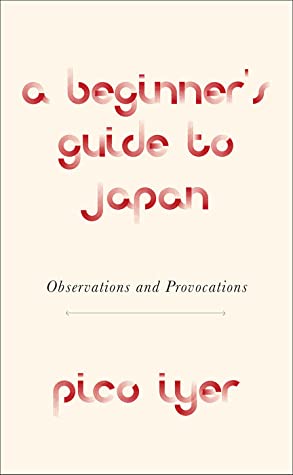
A Beginner's Guide to Japan
Observations and Provocations
کتاب های مرتبط
- اطلاعات
- نقد و بررسی
- دیدگاه کاربران
نقد و بررسی

Starred review from July 29, 2019
Having lived in Japan for decades, the widely traveled and erudite, Oxford-born Iyer (The Art of Stillness) presents this lovely pocket compendium of oddities and insights of Japanese life. Save for a few short essays, the book is comprised of standalone, paragraph-long entries grouped into loose thematic chapters, such as “On the Streets,” “At the Counter,” and “Behind Closed Doors.” Iyer’s range is broad as he discusses the signage upon disembarking Kyoto station (“There are eleven arrows on the sign above you... they point left, right, straight ahead and backwards. In the middle is a question mark”) as well as Japanese passion for baseball, in which there is a surprising amount of violence directed at baseball umpires (an American umpire had to be carried off after being hit “by a bicycle flung from a fan”). He also engages in deeper ruminations such as the role anime plays in Japanese life (“anime is the natural expression of an animist world”), the appreciation for the beauty of silence (“Zen is what remains when words and ideas run out”), and how the Japanese pursuit of perfection can make it “wonderfully welcoming” to outsiders but also “unyieldingly inhospitable, deep down.” Provocative and elegant, Iyer’s guide succeeds precisely because it doesn’t attempt to be authoritative.

August 1, 2019
The accomplished journalist and author, who has lived in Japan for more than 30 years, pursues the elusive Japanese character. With an elegant, understated manner, Iyer (Autumn Light: Season of Fire and Farewells, 2019, etc.) offers poignant reflections on his adopted country and its maddening contradictions and shifting parts. He moves from the public to the private realms, ambling among themes such as travel, dress, animism, language, role-playing, and playing ball. He often inserts a quote that has nothing to do with Japan but that sizes up the place and sense perfectly--e.g., he cites Oscar Wilde, who "saw the folds within emotions and knew that social life was a theater where the emotions are very real." Iyer's subtle observations reveal a great deal about what is beyond the surface of how some Westerners view the Japanese--"as robots," which the author explains to be "less because the Japan are so machinelike and dependable than because inanimate things in Japan possess so much spirit and life." Iyer marvels at the "culture of shared obedience" and service; at the country's astonishing number of vending machines and every imaginable kind of convenience store; and at the company called Family Romance, which employs 1,400 actors "to be family members for clients who are going through hard times." Being in Japan reminded the author of his time visiting West Point Military Academy: "the courtesy, the sense of order--held up by an unbudging sense of hierarchy--the devotion to tradition," and also how the cadets "were brought together into a unit...that spoke for a commitment to something larger than themselves." Iyer also sees the troubling flip side to this "streamlined" and cooperative society, such as its exclusivity and insularity, which keep it "out of step with the larger global community," especially in its treatment of women, outsiders, and minorities. Marvelously nuanced reflections on a nation "in constant motion."
COPYRIGHT(2019) Kirkus Reviews, ALL RIGHTS RESERVED.

Starred review from September 15, 2019
Although celebrated travel writer Iyer (Autumn Light, 2019) has lived in Japan for over three decades, he admits, I know far less [about it] than when I arrived. In hundreds of vignettes and several longer essays, Iyer pinpoints many ways his adopted home baffles Westerners, even as it both embraces Western culture and influences it with such phenomena as anime and Zen philosophy. He even ponders the similarities between Oscar Wilde's wit and Japanese aphorisms. Stitching together observations, statistics, and personal encounters with meditative precision, Iyer depicts a paradoxical culture that finds communion in silence, passion in solitude, and animation in lifeless objects. People act out their fantasies in love-hotels; businesses endear themselves to the public with cartoon mascots, and deceased family members are spoken to as though they're still alive. The longer narratives recount Iyer's often humorous attempts to integrate into Japanese life. A call to his local Apple store turns into a days-long misadventure illustrating the painstaking nature of service in Japan. Elsewhere, he explores Naoshima, an island famous for its immersive art museums, and reflects on the blurred line between art and nature. Candid and wholly absorbing, Iyer's inventive guidebook is more than a collection of cultural curiosities?it's a tribute to a nation that prizes social consciousness and sees life in temporality.(Reprinted with permission of Booklist, copyright 2019, American Library Association.)

























دیدگاه کاربران